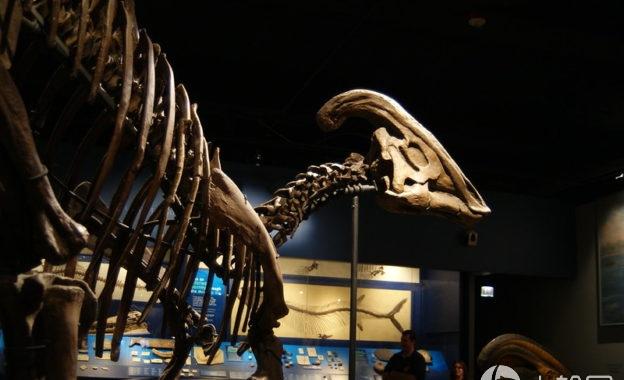Recently, paleontologists discovered rare diseases that modern humans also suffer from in the 66 million-year-old duckbill keel skeleton. In the end, what kind of impact can the "same disease" between dinosaurs and humans have on the treatment of human diseases in the future?

Bones can talk
Recently, two paleontologists at Tel Aviv University in Israel, after carefully studying the fossils of a platypus, released a surprising conclusion: the platypus once had a disease that modern humans also get.
Paleontologists wrote the results into a report and published it in The Scientific Report.
The "hole" is mysterious
According to research, the platypus was unearthed in Dinosaur Provincial Park, in the southern part of today's Alberta, Canada. Paleontologists dug up its skeleton and found two duck-billed dragon coccyxes filled with strange, undeserved holes.
After microcomputer tomography and detailed studies, archaeologists made the diagnosis: The platypus had once suffered from Langerhans cell histiocytosis (LCH).
Langehan cell histoglobulosis is a rare disease caused by an overproliferation called "Langehan cells" that destroys the original tissue. At present, the cause is unknown, from small babies to adolescents, there is a chance to occur, boys are particularly susceptible to disease. In addition, because the proliferating cells erode the bone tissue, causing a cavity in the bone, it can cause pain in the patient.
The illustrator constructs an imaginary drawing of a duck-billed dragon based on excavated fossils, extant creatures, etc. (Source:Charles R. Knight/ Public domain)
Whoever walks by will leave a trace
Paleontologist Hila May said: "It is very difficult to judge the medical history of a living organism from the traces on fossils alone. Because many different diseases leave similar marks on the bones. "But LCH is quite special, it leaves special marks on the bones."
How to know what disease the dinosaurs had
Just like humans, dinosaurs can get sick, and some even leave records on fossils.
And this evidence will become the research material of "paleopathology" experts, and with the help of modern technology, it will be possible to determine the diseases that the fossil owner has had.
Many diseases that are common in modern humans, such as gout and arthritis, have also appeared in dinosaurs. (Source: Tatsushi Photo)
Dinosaurs are sick more than people think
If you make a list of diseases that dinosaurs and humans share, the list could be much longer than humans think.
Scientists have found that T. rex suffered from gout; on the bones of an iguanodon it was found to have arthritis.
that...... What about cancer?
So will dinosaurs also be attacked by cancer?
For paleopathologists, it is difficult to tell whether dinosaurs had cancer before they died, and not all cancers leave traces on fossils. However, there is currently evidence that cancer may have been one of the problems of dinosaurs.
Studying dinosaur diseases is not only to learn more about them, but also to increase human understanding of these diseases and find a cure. (Source:Unsplash)
Why study what diseases dinosaurs used to get?
The reason scientists go to great lengths to study the history of dinosaurs is simple: to provide clues to overcome these diseases.
A whole new field, "evolutionary medicine," is the study of the evolution of specific diseases over different ages and circumstances.
Many of the diseases humans face come from animals, such as COVID-19, HIV, tuberculosis, etc. Therefore, it is important to study the development and symptoms of these diseases in other animals.
"When we know that the occurrence and evolution of disease is independent of time and species, it means that the cause and subsequent development are not affected by human behavior or the environment alone, but are probably just the simplest physiological problems," May said. ”